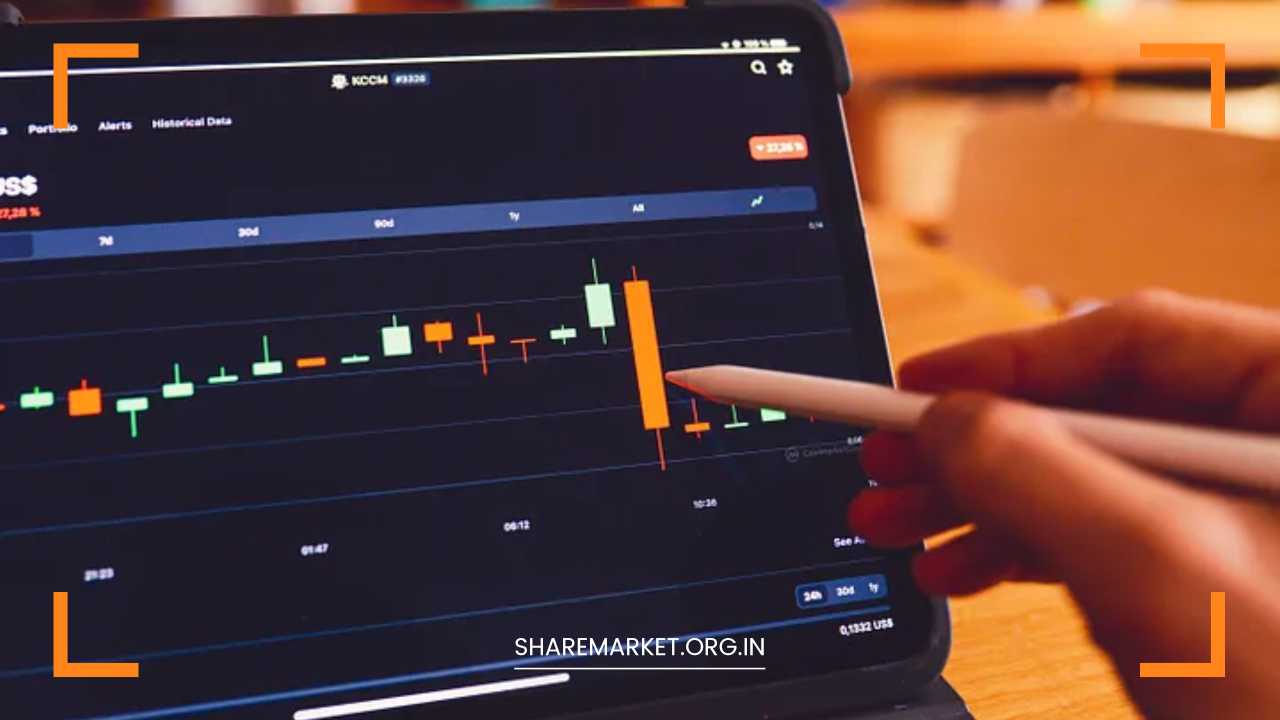Why Share Market Down Today

Why Share Market Down Today
The share market is a dynamic arena where stocks, equities, and various financial securities are bought and sold.
If you have even a slight interest in the share market or have been actively investing, you must have come across the phrase “The share market is down today.”
But what does this mean exactly? Is it a positive or negative occurrence? Well, the interpretation of this phrase largely depends on your perspective.
Reasons For Share Market Fall
In this article, we will delve into the concept of a share market crash, exploring its causes, effects, and providing guidance on how you, as an investor, can navigate through it while safeguarding your portfolio.
A share market crash refers to a significant and sudden decline in the overall value of stocks traded on the market.
It is characterized by a substantial decrease in stock prices, often accompanied by panic selling and a general sentiment of pessimism among investors.
The causes of a crash can vary, ranging from economic factors such as recessions or financial crises to geopolitical events or sudden market shocks.
The effects of a share market crash can be far-reaching. It may lead to a decline in investors’ wealth, erode market confidence, and create a domino effect on other sectors of the economy.
Additionally, a crash can trigger a period of economic instability, affecting job markets, consumer spending, and business profitability.
However, it’s important to note that a share market crash is not inherently good or bad. While it can result in short-term losses and volatility, it can also present opportunities for long-term investors to purchase stocks at discounted prices.
The key lies in understanding how to navigate through a crash and manage your investments effectively.
As an investor, there are several strategies you can employ to deal with a share market crash without adversely impacting your portfolio.
These include diversifying your investments, maintaining a long-term perspective, avoiding panic selling, and conducting thorough research before making any investment decisions.
By diversifying your investments across different asset classes and sectors, you can reduce your exposure to market volatility.
Maintaining a long-term perspective allows you to ride out short-term fluctuations and take advantage of potential market recoveries.
It’s crucial to resist the temptation of panic selling, as it can lock in losses and hinder your portfolio’s growth potential.
Instead, focus on conducting comprehensive research, analyzing fundamental factors, and making informed investment choices.
In conclusion, the share market serves as a platform for trading various financial securities. A share market crash signifies a significant decline in stock prices, but its implications are subjective and depend on individual perspectives.
Understanding the causes, effects, and employing effective investment strategies can help you navigate through a crash while safeguarding your portfolio’s long-term growth potential.
What Causes Changes in Stock Prices?
The share market is a highly volatile environment where stock prices fluctuate on a daily basis. These price changes are primarily driven by the forces of supply and demand.
When there is a higher number of buyers interested in purchasing a stock, the demand for that stock increases, leading to an upward movement in its price.
Conversely, if there are more sellers than buyers, resulting in an excess supply of the stock, the price tends to decrease.
Understanding the concept of supply and demand is relatively straightforward for investors and traders. However, the more challenging aspect lies in comprehending the reasons behind buying or selling specific stocks.
This involves assessing positive and negative news stories related to companies. Each investor has their own strategies and perspectives when it comes to evaluating stocks.
The underlying principle is that the upward and downward price movements of a stock reflect investors’ perception of the company and its value.
One crucial factor that affects a company’s value is its earnings. In simple terms, earnings represent the profit generated by a company above the initial investment capital.
Ultimately, a company must generate profits to sustain itself in a competitive market environment.
Various other factors influence stock prices and the overall market direction.
Besides company-specific factors, stock prices are influenced by broader economic conditions, inflation rates, interest rates, international markets, global financial trends, and more. Investors need to stay informed about these developments to stay ahead of market trends and make informed decisions that minimize potential losses.
In situations where multiple stocks are significantly affected, it can lead to a ripple effect in the market, potentially resulting in a share market crash.
In summary, stock prices change due to the interplay of supply and demand. Factors such as earnings, business performance, economic conditions, and global trends all contribute to the shifts in stock prices.
Investors must stay vigilant, monitor market developments, and make informed decisions based on their analysis to navigate the ever-changing share market landscape.
There are Several underlying factors cause the Share Market to go down. Listed below are some of them to help you understand the signs of downward markets.
Economic factors: Economic factors play a significant role in influencing the share market. Factors such as fluctuating interest rates, economic downturns, inflation, deflation, tax hikes, financial and political shocks, shifts in economic policies, and changes in the value of the Indian Rupee can contribute to a decline in the share market.
These circumstances are unpredictable and fall outside the control of individual investors.
However, for a share market crash to occur, these economic factors must reach a level of significance that disrupts the balance between supply and demand for goods and services in the market.
Supply and Demand: Another significant factor contributing to a downward trend in the share market is the disruption in the equilibrium of supply and demand.
The price of a share fluctuates as a result of this imbalance. When the demand for a particular stock surpasses the available supply, the price of those shares increases.
Conversely, when the supply exceeds the demand, the share price decreases. This situation becomes more pronounced when there is a substantial disconnect between supply and demand on a broader scale, impacting multiple companies.
Such a scenario can ultimately have an effect on the entire share market since it is a collective representation of numerous individual companies.
Global Markets: One of the primary reasons behind the decline of share markets is the influence of global economic trends.
The Indian economy is interconnected with global markets, attracting substantial investments from foreign investors into Indian businesses.
These prominent players and their substantial investments can trigger sudden activity in the share market, leading to heightened volatility in stock prices.
Indian companies also raise capital by listing their shares on foreign stock exchanges. Consequently, the performance of these companies’ shares is significantly impacted by the overall state of the global economy.
Such fluctuations in share prices on foreign exchanges can subsequently affect the domestic share market in India.
When the global economy experiences growth or decline, it has a substantial impact on the shares of companies involved, thereby creating a ripple effect in domestic share markets.
If foreign exchanges witness a decline, investors start anticipating the repercussions to reverberate across various share markets, particularly in India.
In the event of a significant global downturn, it can potentially lead to a decline in the Indian share market as well.
International Events: The factors influencing stock prices extend beyond the economic conditions of foreign countries.
Various unpredictable events can have a significant impact on stock prices, such as a sudden shift in government leadership in a stable country, outbreaks of war, internal conflicts, unforeseen natural disasters, and more.
These events are difficult to predict, making it challenging to anticipate their effects on the economy and, consequently, on share markets.
Share market crashes are typically temporary and relatively short-lived. It is crucial not to succumb to panic and make impulsive decisions during such turbulent times.

















